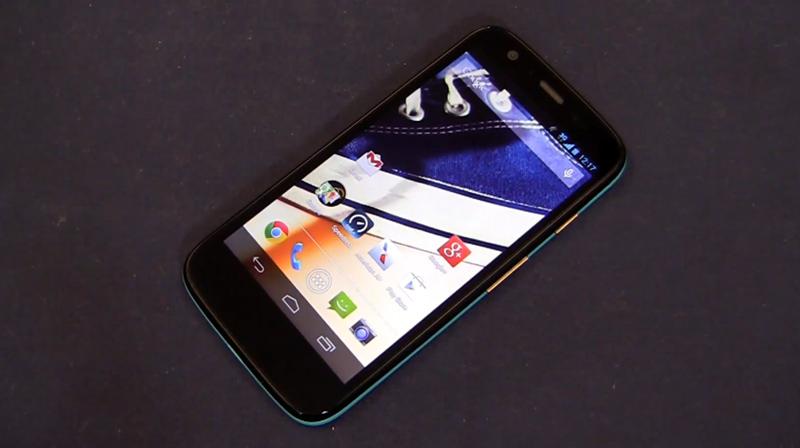So, before the end of 2013, I wrote about how I wanted to
put a bigger focus on unlocked devices and, perhaps more importantly, just stay away from carrier-branded devices in general. While I can do that with some handsets, like Apple's iPhone lineup, without having to go the unlocked route, there's no denying that the options in the unlocked market have never been better. Sure, we've always had high-end, mid-range and low-end devices available to us from online and physical retailers, and many of them are the sibling devices we get through carrier networks here in the States, but we saw a big push for the idea of unlocked devices in 2013. A push that we're going to see continue into 2014, with even better devices, and more of a reason to stay away from those lengthy contracts.
For me, moving away from carrier-branded devices isn't so much that I don't like contracts (I don't, but I've just grown accustomed to their presence in our lives), or that I can't ignore pre-installed software. Truthfully, both of those things are small issues that can be easily ignored, or just dealt with over time. The reason I want to get rid of the carrier-brands is because I want to remove the middle-man from my device's lifespan. I don't want to have to deal with updates through the carrier, or have to deal with their carrier testing. We all know how it can delay any kind of update for a device, so by removing them from the equation where it's most troublesome seems like the best step.
We'll see if I actually do it or not.
I couldn't help but notice that two things happened right at the start of the New Year. First, Motorola did what we all knew they were going to do: dropped the price of their hero device, the Moto X. It wasn't as low as some people thought it might go (especially considering their ridiculously low sale price of the handset throughout December), but it's certainly better than it was. (I love how they're comparing the price of contract-free Moto X to other devices, like an iPhone 5s and Galaxy S 4 in some of their marketing. That's pretty funny.) The other thing, though, may actually be even more impressive.
The
Moto G will be available through Best Buy very soon (as of the time of this writing), through Verizon's network, and you'll be able to buy it without a contract for $99.99. Yeah, you saw that correctly. You'll be able to walk into a Best Buy and pick up a Moto G, which is a good device for what it offers, for only a hundred bucks (plus tax). That's quite a price drop when you compare it to the GSM model, and the Moto G looks like a beast of a device compared to other handsets being sold for $100 off-contract.
So, too good to be true, or a dream come true? Well, that really depends on what you need in your day-to-day life. See, you have a pretty big trade-off with that $100 price tag, but it's not anything related to performance, or features you'll find on the device. All of that's the same as the GSM variant. You will be missing 4G LTE-connectivity, though. Instead, you'll be stuck on Verizon's 3G network.
Ah, so we've got ourselves another Nexus 4 situation, then. If you'll recall, the Nexus smartphone that LG and Google released in 2012 was missing any kind of LTE-connectivity, and many attributed that to its low price tag. Indeed, now that the Nexus 5 has the ability to connect to LTE networks, and is being offered for slightly more money than its predecessor, that theory is pretty sound. It would appear that we have the same situation here, with the Moto G. But, it shouldn't be that much of a surprise. At a price that low, there are bound to be trade-offs. That's just the way it works.
The question is, is it worth it? Again, that's up to you. If you, for instance, still have unlimited data and don't want to get rid of it, nor do you want to buy an expensive device to make sure you keep it, then the Moto G will probably look pretty enticing. Or, maybe you're out of contract in general and you don't want to extend it to get a new phone, and again, you don't want to spend a lot of money on a new device. The Moto G to the rescue.
It's a no-go for me, though. I've realized in the last year or so,
ever since the release of the Nexus 4, that I need LTE. I don't miss unlimited data at all. I've never come near going over my allotted data usage every month, which is 6GB, and there are three active smartphones and one tablet on my account. I'd gladly give up unlimited data all over again to make sure I had access to LTE.
So I'm curious, would you be willing to give up your LTE connection to get your hands on a contract-free device like the Moto G? Or would you wait a little bit, get a bit more money, and spend it towards another device? Do you need LTE, or could you live without it? (Do you already live without it?) And if you have LTE now, would you trade down from it? Let me know!
